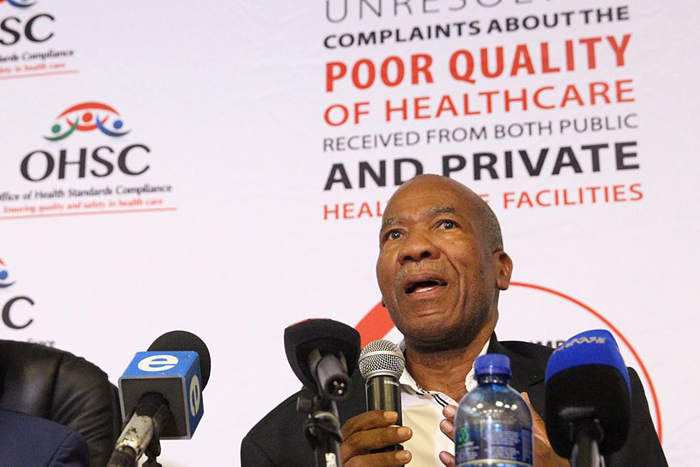Mental health care 'chronically underfunded' in SA
03 February 2017 | Photo Independent Newspapers / Jacques Naude.
Mental health care in South Africa has been chronically underfunded for many years, which is reflected in inadequate care in primary clinics, community residential care facilities and acute mental health units in district and national hospitals, says Professor Crick Lund.
Lund, director of the Alan J Flisher Centre for Public Mental Health (CPMH) in UCT's Department of Psychiatry and Mental Health, issued a statement in the wake of the Health Ombudsman Professor Malegapuru Makgoba's report into the deaths of more than 94 mentally ill patients from Life Esidimeni in Gauteng.
The Life Esidimeni facility was closed as a result of the withdrawal of Gauteng Department of Health funding. In his report Makgoba established that more than 94 deaths had occurred between 23 March and 19 December 2016 as a direct result of patients being transferred from Life Esidimeni to unlicensed NGOs. Makgoba reported that these facilities were unsuitable and inadequately prepared to care for these patients.
Lund said that although the country has an excellent National Mental Health Policy Framework and Strategic Plan (2013–20), most provincial departments of health had so far failed to adequately implement them.
Public outcry
The circumstances around the deaths of these patients – some from hunger, others from exposure or lack of medication – caused a public outcry when the report was released this week.
“The Gauteng Department of Health undertook deinstitutionalisation of the Life Esidimeni patients as a cost-saving strategy, but this has led to disastrous consequences,” said Lund.
“Deinstitutionalisation should never be seen as a cost-saving strategy. Deinstitutionalisation can work and most healthcare systems are moving – correctly – to emphasising community based care. But the money must follow the patients into the community.
“Several studies have shown that community based care is generally more acceptable to patients and their families and leads to better clinical and functioning outcomes. But it must be backed by substantial investment in community based care, including adequate staffing, residential care facilities and support systems for activities of daily living.”
Provinces didn't implement norms
In 2003 the National Department of Health commissioned a study by the CPMH to develop norms for community based care, including staff/population rations, bed population ratios, facility requirements and so forth. But this had never been implemented by the provincial departments of health, says Lund.
“Our studies show that the indirect costs of mental illness through lost income far outweigh the direct costs of mental health care. So it is not a question of South Africa not having enough resources to treat mental illness; it is costing society more not to treat mental illness than to treat it.”
 This work is licensed under a Creative Commons Attribution-NoDerivatives 4.0 International License.
This work is licensed under a Creative Commons Attribution-NoDerivatives 4.0 International License.
Please view the republishing articles page for more information.










